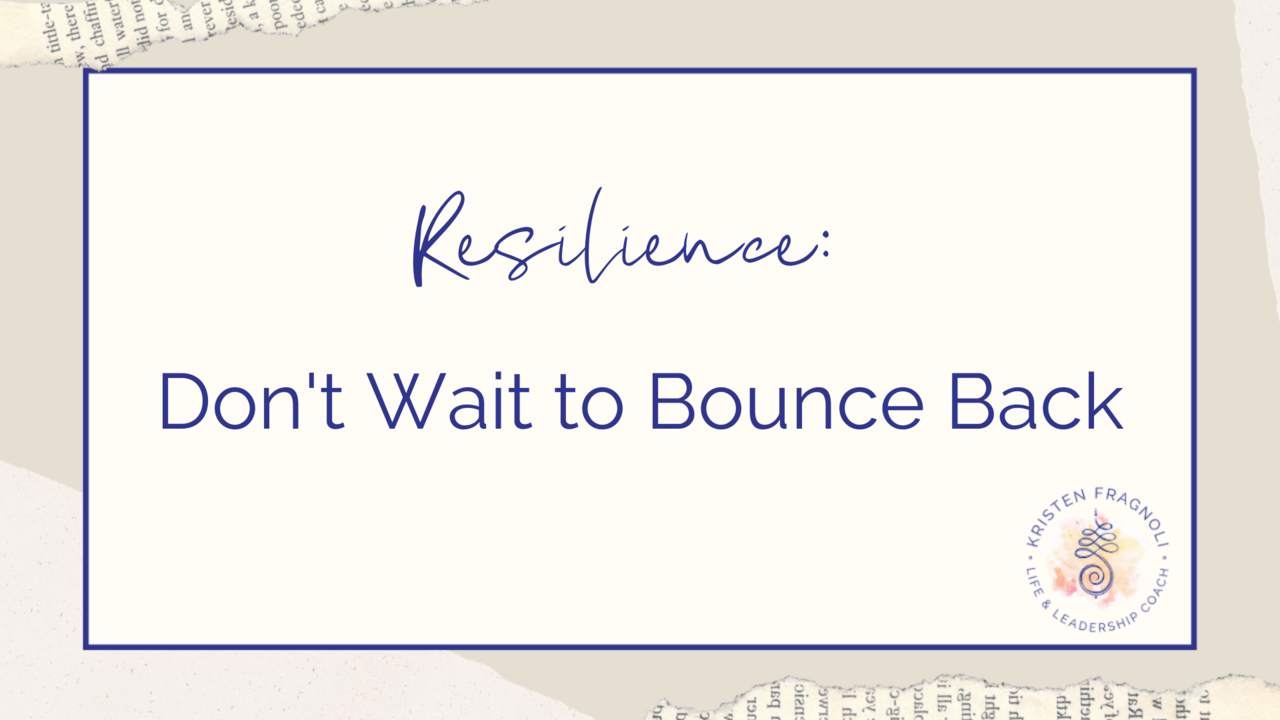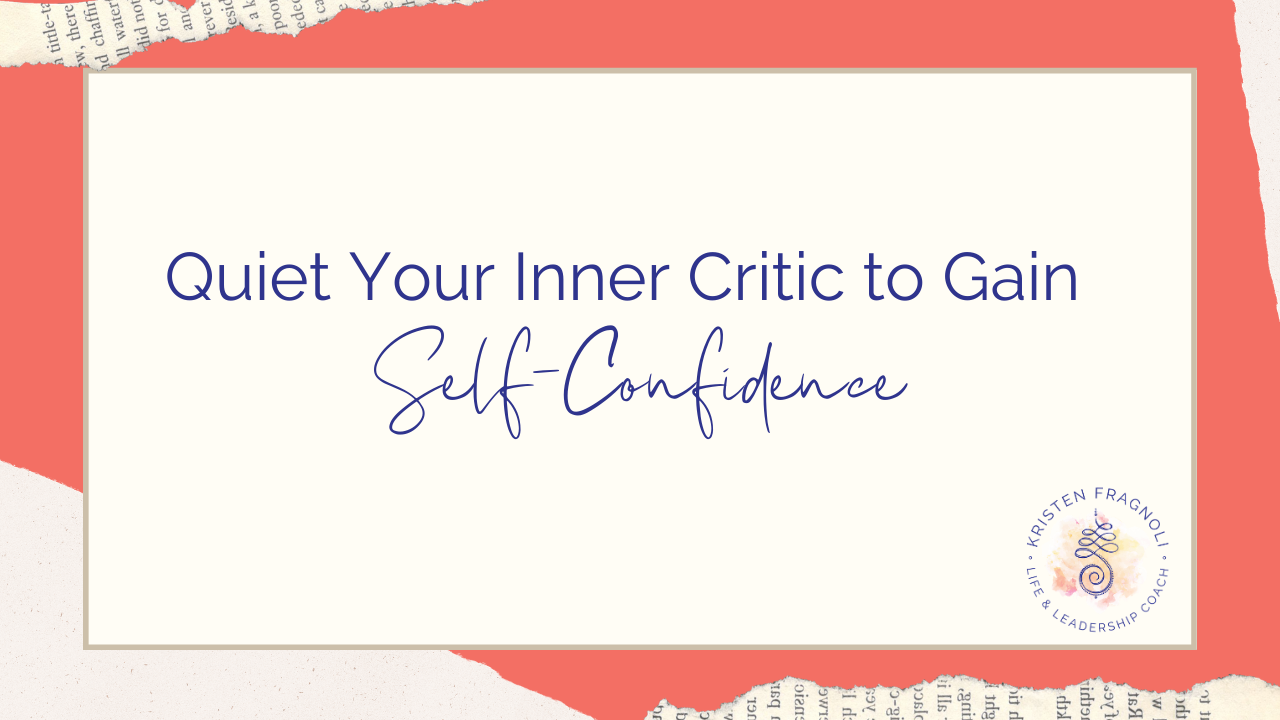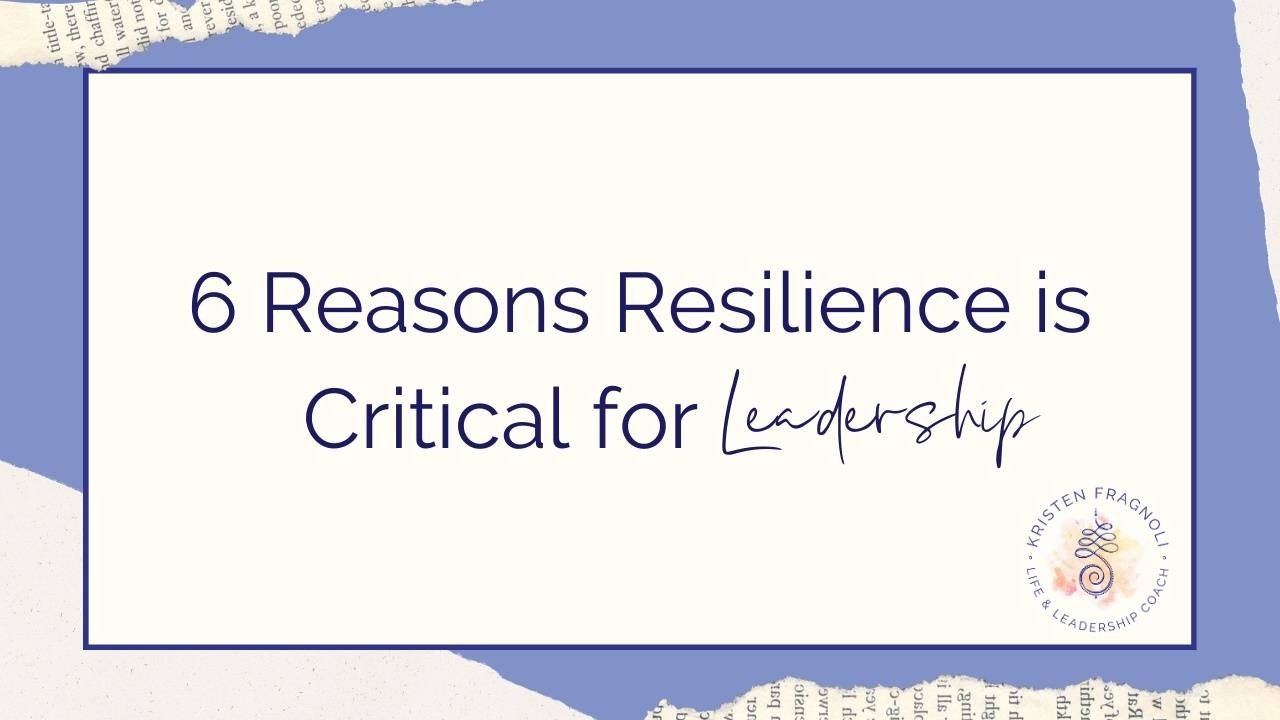Resilience: Don’t Wait to Bounce Back

With all the collective struggles we are facing - pandemic, economic and political upheaval, remote work, unemployment - there is more need than ever to be able to respond with resilience.
But, most of us want not only to survive - we want to thrive. There is a shared understanding that resilience is having the strength to endure challenges and overcome adversity, and I think you’ll agree that resilience is a positive trait to possess. When I ask workshop participants to tell me what resilience is, the most common answer is “resilience is the ability to bounce back after difficulty.”
I have heard this in 100% of the resilience workshops I have facilitated.
It’s not wrong, but...it’s not enough.
While “bouncing back” after failure, disappointment or difficulty is certainly good, it already implies a “reactive” tone - it asserts that we bounce back after something happens. And while that may be when resilience shows itself, we don't want to wait until adversity hits to start thinki...
Quiet Your Inner Critic to Gain Self-Confidence

Even as a confident, competent, and well-grounded person, I know I am not alone in sometimes battling self-critical thoughts – call it the inner critic, gremlin, saboteur, or negative voice.
I don’t think anyone completely escapes it, so I think we should just talk about it.
When we don’t talk about the self-critical thoughts we face, we empower that little gremlin and give her cover. If we have shame about having an inner critic, we bolster its influence, if we talk about it we can help each other make peace with it. We can “name it to tame it.” I call her “her” (instead of “it”) because like it or not, she is a part of me – she is not Me, but she is a part of me. (And your gremlin is a part of you too.)
Our critical inner voice comes from a natural negativity bias our brains have developed to keep us safe. Neuroscience confirms that we’re wired to stay on alert for threat and negative circumstances as a survival mechanism.
Fortunately, in our modern world, many of the threats ...
6 Reasons Resilience is Critical for Leadership

Leaders face many challenges supporting, guiding, and inspiring teams.
They are called on to build a broad and versatile set of skills to create change, motivate action, and mediate conflict - among many other expectations. Extraordinary leadership requires adaptability and responsiveness to a host of ongoing demands; now more than ever leaders must understand how to develop individual and team resilience if they want long-term success.
Resilience is not only the ability to bounce back after difficulty and endure through tough times, but it is also the ability to face a multitude of experiences with optimism, authenticity, and genuine care for others. True resilience helps you grow; it helps you Bounce Forward.
Resilient people are skilled in self-care, open to growth and transformation, and are grounded in the knowledge of their strengths and deepest personal values.
Building a Culture of Resilience in our personal lives and in our organizations is critical right now for the fol...
Practice Awe And Change Your Life!

If you have ever experienced the summit of a mountain, the vastness of the ocean, or the wonder of the northern lights, you’ve experienced the incredible sensation of awe, of the sublime.
These experiences are a powerful force to help us put our lives into perspective and recognize the immensity of the world within which we live. Feeling awe reminds us that we are just a small part of an immense, interconnected world. The realization of our connection to that immensity is both empowering and humbling.
When I stand amidst a landscape that inspires awe I feel a physical, emotional, and spiritual sense that I am both naturally powerful because of my inherent connection to this incredible universe, and extraordinarily small in the scheme of all that has happened, is happening and will happen in this world. This paradoxical experience includes a stirring of many sensations – thoughts, emotions, physically sensing the air, the heat, the smell and sound of a place.


